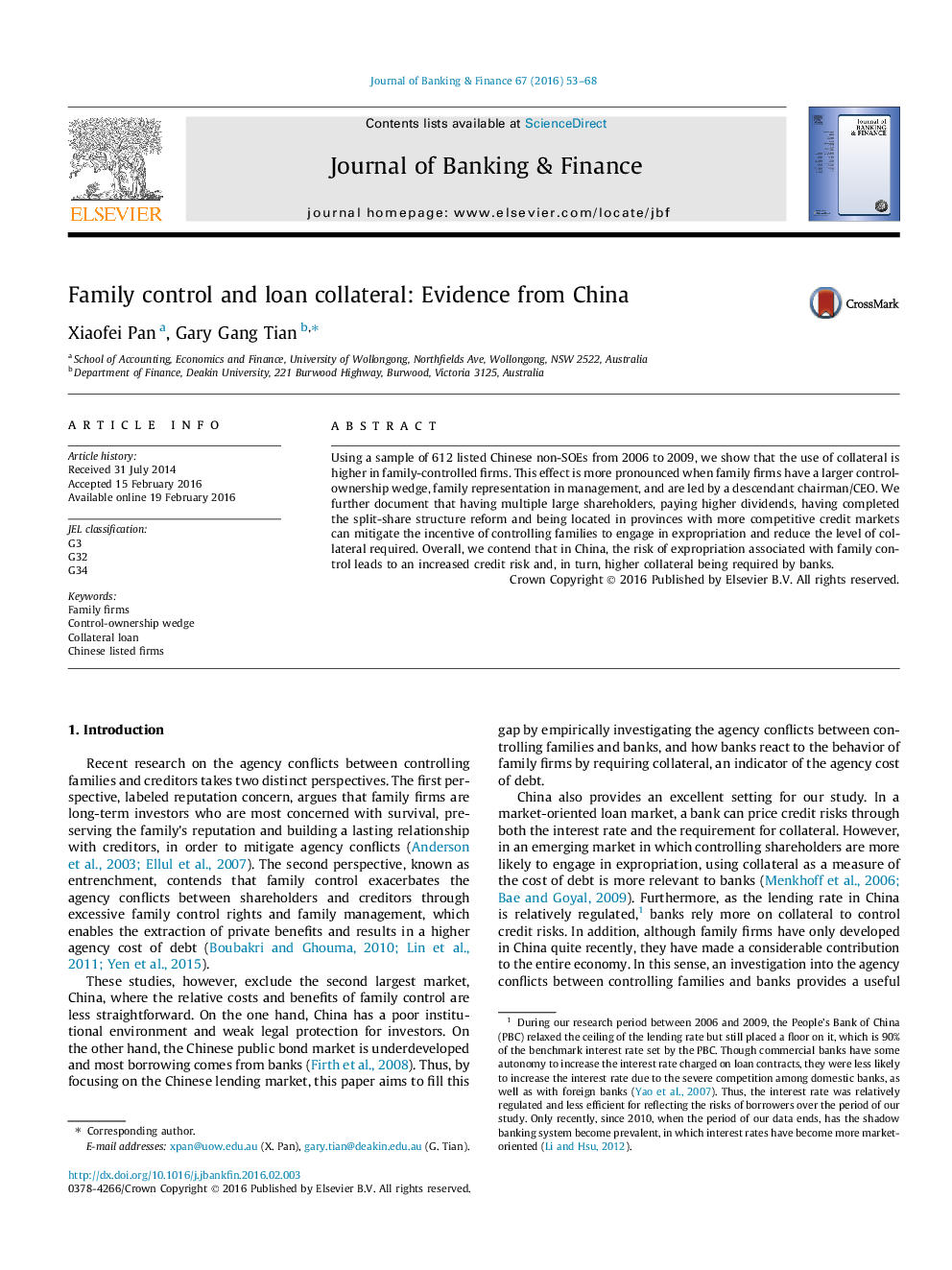| Article ID | Journal | Published Year | Pages | File Type |
|---|---|---|---|---|
| 5088388 | Journal of Banking & Finance | 2016 | 16 Pages |
Using a sample of 612 listed Chinese non-SOEs from 2006 to 2009, we show that the use of collateral is higher in family-controlled firms. This effect is more pronounced when family firms have a larger control-ownership wedge, family representation in management, and are led by a descendant chairman/CEO. We further document that having multiple large shareholders, paying higher dividends, having completed the split-share structure reform and being located in provinces with more competitive credit markets can mitigate the incentive of controlling families to engage in expropriation and reduce the level of collateral required. Overall, we contend that in China, the risk of expropriation associated with family control leads to an increased credit risk and, in turn, higher collateral being required by banks.
